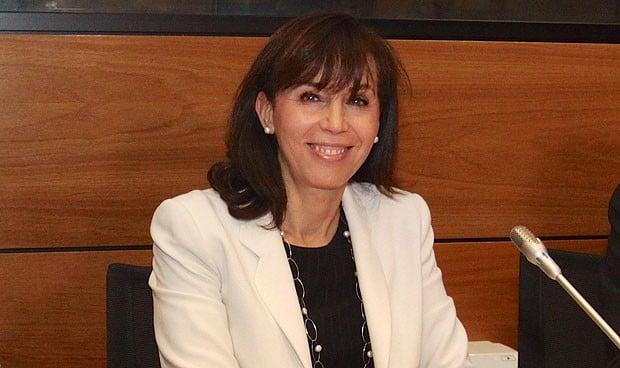
The Federation of Spanish Scientific and Medical Associations (Facme) has appealed to the Ministry of Health in connection with the necessary revision of the protocol ‘Strategy for early detection, surveillance and control of Covid-19’ dated 12 November. Consider keeping some aspects and indications that would need to be adjusted with the new European proposals in areas for improvement and reduce the spread of the virus, proposing a broader and more operational view of sample collection and analysis. It also offers the knowledge and experience of the working groups made up of professionals from the different scientific societies that make it up, with a multidisciplinary vision.
It follows the recommendations of the European Center for Disease Prevention and Control (ECDC), the rapid antigen test -whose great advantage is the immediate result, in 15 minutes, though the sensitivity is lower than that of PCR– They are approved for suspicious cases and require local validations for their application, some of which have already been performed in Spain, serving as a great help to define the usefulness of the test in different scenarios.
DIRECT | Breaking news and news about the Covid-19 coronavirus
Based on these advances, Facme considers it necessary to review the current protocols taking into account the following aspects in the handling of cases and contacts in Primary Care and Emergency Services:
• In the patients suspected of Covid-19 infection “after clinical assessment is recommended as initial test the antigenic test. In cases of high probability of disease and negative result it should be supplemented with a PCR in the same act; in case of not being available the antigenic test could be repeated between 2 and 4 days later. If the diagnosis is not confirmed, serology can be performed with detection of Ig M and / or Ig G from the 7th day of symptoms “, indicating.
• As for the continued close contacts (cohabitants or close relationship), it is recommended to perform the antigen test in the shortest possible time to detect new cases, which in turn allows the study to be extended to their contacts. When the result is negative, in addition to indicating quarantine, the antigen test can be repeated no later than the last day from the last contact “, explaining.
• In the cpunctual close contacts (15 minutes less than two meters without adequate protection as a general but not the only indication) we recommend, for its part, “quarantine and study with antigen test no later than the seventh day and not before the third.”
• In the non-close contacts they only recommend study in special situations such as health centers, socio-health centers and other institutions. “In all contacts it is recommended to increase the measures of protection against others and active monitoring of symptoms for 10 days,” he explains.
• “The bear Massive population screenings are not recommended except in localized outbreaks with a high incidence, as the lower sensitivity and predictive value of the test, would result in an increase in the false positive rate. No study was carried out to demonstrate the use of this type of measure, so any action should be preceded by the corresponding validation. In fact, the preliminary results of the ongoing validations suggest a significant loss of sensitivity in asymptomatic patients without known contact, “they say.
• Remember also that the “tests have false positives and false negatives, and therefore its indication and interpretation is necessary based on the clinical characteristics of the patient, the taking of the sample and the epidemiological situation. Thus, a negative result of an antigen test does not exclude the development of the disease or the possibility of infection (especially in the days immediately following the test) and it is not a good idea to relax social distancing measures based on a negative test which generates false security, “they say.
They call for unifying the master lines
For all this, Facme asks the Government of Spain and the autonomous communities to ensure the proven measures to control the pandemic, which the protocols are reviewed following the scientific recommendations y what the main lines of action in the different communities and health centers are unifieds although they require local operational adaptations.
They also claim that “the collaboration between tracking and care teams, that the available resources are used consistently following the clinical indications and that conflicts with health professionals are avoided when the most necessary are those that we are concentrated in our work and more fatigue accumulates in each one of us and in the health system “.
“From the medical and scientific community, from each and every one of the specialties and jobs, we never stop offering our maximum collaboration, with the utmost rigor, with the common purpose of achieving the complete eradication of this disease and as an immediate goal avoid a third wave in the face of the inevitable socialization associated with the Christmas holidays, “he added.
For them the goal is, with everyone’s effort and proper use of human resources and diagnostic tests, “reducate the incidence of Covid-19 cases to safety limits in the face of future escalations and to reduce the pressure on the health system, to recover the attention to the chronic patients and pending surgery and to favor the economic and social activity of the country “.
Although it may contain statements, data or notes procedures of institutions or health professionals, the information contained in Medical Writing is edited and prepared by journalists. We recommend to the reader that any health-related questions be consulted with a healthcare professional.